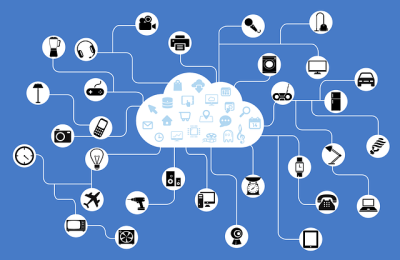
Health care, as with any other service operation, requires continuous and systematic innovation in order to remain cost effective, efficient and timely, and to provide high-quality services. Many managers and experts believe that cloud computing can improve health care by reducing electronic health record startup expenses, such as hardware, software, networking, personnel, and licensing fees, and therefore will encourage its adoption. One example of a cloud-based healthcare service is a proposed system that automates the process of collecting patients’ vital data via a network of sensors connected to legacy medical devices, and to deliver the data to a medical center’s “cloud” for storage, processing and distribution. Another example is the Sphere of Care by Aossia Healthcare, which launched earlier this year. These cloud-based systems’ main benefits are that they provide users with real-time data collecting seven days per week, and reduce or eliminate manual collection work, which also eases the deployment process.
[media-credit name="bykst/Pixabay" align="alignright" width="400"] [/media-credit]
[/media-credit]
However, there challenges facing health-care providers in moving all their data to the cloud. The biggest issues are those regarding security and privacy of information. For example, if medical data is stored on the cloud, then health-care services no longer have complete control over the security of their patients’ information. There is some risk of the data possibly being exposed or lost. Additionally, there are different regulations that can vary from region to region regarding patient information, making compliance with these various regulations potentially complicated. And, if there are online server outages, availability to the data is severed during that time.
What do you think? Is cloud computing the future of health care? Do you think the benefits of cloud computing outweighs the risks?
[media-credit name="jeferrb/Pixabay" align="aligncenter" width="400"] [/media-credit]
[/media-credit]
More Resources
ARTICLE: KQED
Critical Condition: How a Broken Medical Records System is Endangering America’s Health
Digital medical records are scattered across dozens of systems that don’t talk with each other, putting patients’ lives in danger. Learn about the issue and view an interactive timeline about the quest for electronic medical records.
AUDIO: NPR
Sharing Patient Records Is Still A Digital Dilemma For Doctors
In an time when most industries cam easily share large digital files, the health-care industry still relies on paper. Since 2009, $30 billion from taxes has gone to install electronic records systems in hospitals and doctors’ offices, though most of them can’t talk communicate with each other.
ARTICLE: KQED
Startups, Entrepreneurs Try to Solve Medical Records Debacle
Electronic health records have a long road ahead before medical information can be reliably and securely delivered between hospitals and other care providers. While the government works to solve these problems, some entrepreneurs are hard at work trying to find solutions.
Go here for best practices for using Do Now, using Twitter for teaching, and using other digital tools.
This post was written by Idris Hanafi, a student at Southern Connecticut State University.
KQED Do Now U is a bi-weekly activity in collaboration with SENCER. SENCER is a community of transformation that consists of educators and administrators in the higher and informal education sectors. SENCER aims to create an intelligent, educated, and empowered citizenry through advancing knowledge in the STEM fields and beyond. SENCER courses show students the direct connections between subject content and the real world issues they care about, and invite students to use these connections to solve today’s most pressing problems.
![]() [/media-credit]
[/media-credit]

